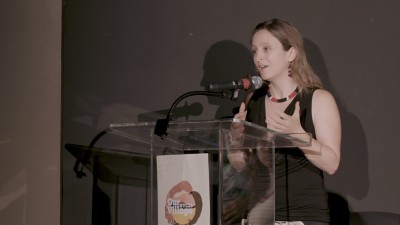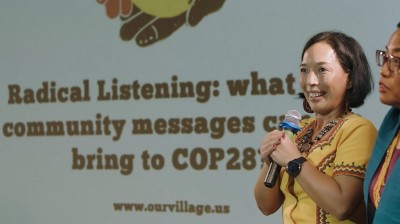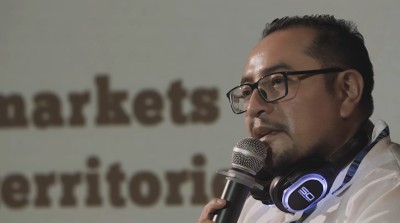We are all Native
Transcript
- Who’s ever interested and learning if you have European descent or anywhere else in the world, look at your tribal ancestry and you could and you can that brings you connected and you can relate to the rest of us.
- Then, you know, because that’s happened to every single person because yes, everybody is native to somewhere, you know,even though you could be, you could, you know, you could be in a country occupying on someone else’s land. you’re actually from somewhere else, you know, I’m trying to say,and for your native to somewhere else, you know, that’s the beauty about it.
- So we have we’ll have to realize, you know, we’re all on. We’re all native.
- You know what I mean, even though some of us have been colonized, even even though some of our own culture colonized us? You know, I’m trying to say,like white Christianity colonized white people.
- You know, I’m trying to say they terrorise all of their perspective and their in their reality. You know what I mean?
- So it’s it’s like you. Yeah.
As human beings, we all have ancestral origins and can trace our roots to specific geographic regions. These regions are often referred to as our “native” or “ancestral” homelands. Our native origins can be influenced by factors such as ethnicity, cultural heritage, and family history. It’s important to note that throughout history, human populations have migrated and intermixed, leading to diverse ancestral backgrounds for many individuals. This diversity is especially prominent in countries with a history of immigration and cultural exchange. Understanding and acknowledging our “native” origins can contribute to a sense of identity, cultural heritage, and a connection to our roots. It’s also essential to recognize and respect the multicultural and diverse nature of society, appreciating the richness that comes from different backgrounds coming together. However, there is a specific cultural, political and territorial identity with terms such as “Native” or “Indigenous” which should not be confused with the idea of humans being native to earth. Indigenous/Native peoples around the world have rich and diverse cultural heritages that encompass their relationships with land, community, spirituality, and governance. Nevertheless, historical injustices and ongoing systemic issues have often eroded their cultures, resulting in the loss of Indigenous languages, cultural practices, and traditional knowledge systems. This is a key difference that we should take the time to understand: Native/Indigenous Peopless and native as a form of expressing that all humans have ties to specific parts of the world as D’Pharoah suggests when he says “we are all native”.

What is climate justice?
The systems of oppression that we all live in right now are based in domination and they are all interconnected. Only by tackling the systemic violence that is embodied in capitalism, racism, sexism and others can we truly fight the climate crisis


